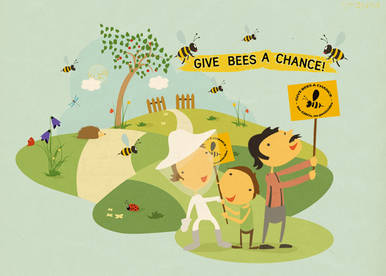
The B2B project just launched at EU level aims at developing an open source tool to follow up bee colony losses.
Beekeepers can use this application, either on their smartphone or on a computer, to share information about the status of their bees. Regular reports will make it possible for beekeepers, but also for the general public and for advocates or the scientific community to monitor, use or analyse this data.
Indeed, this application will allow open data mapping and the identification of geographic areas where bee health suffer, be it from human or environmental factors. This initiative has no intent to replace the work of researchers and bee specialists, but is designed as a whistle-blower to be used to raise awareness of the issues affecting bees.
This project is promoted by 3 main partners. The
European Beekeeping Coordination, an association working for the protection of bees at European level, provides the scientific-technical expertise on the subject and the networking capacity among beekeeping organisations.
Citoyens capteurs, a network of citizens on science and participatory democracy. The
Greens/EFA Group in the European Parliament, engaged to defend open data technologies and the protection of biodiversity, are the financial supporters of the project
Bee2Bees was officially launched on the 6th of November at the conference,
'A pollinator-friendly agricultural model: the way forward', organised by the Greens/EFA, in the framework of their
Food Campaign. This event aimed to raise awareness about the link between the existing dangers to pollinators and the current agricultural model.
Bee2Bees is now being presented to a broad audience of beekeepers at the European Congress of Beekeeping --
Beecome -- that started on Saturday 9th of November and is going to end today in Louvain-la-Neuve, Belgium.
Beekeepers all around Europe are invited to take part this project. Thanks to their contributions this participative tool can play a crucial role to complete
scientific evidence, showing the risk posed by the current agricultural model to bee populations.
For more information go to:
http://www.bee2bees.eu/ 
